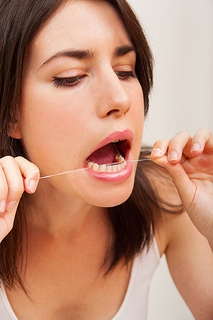
The Good News
Carbohydrates are one of the body’s essential macronutrients (along with protein and fat). We use carbs to convert the food we eat into energy. How does this work? It’s a sophisticated process:
- Carbs break down into sugars as we digest them
- Sugars are absorbed into our bloodstream
- The pancreas releases insulin when blood sugar levels rise
- Insulin enables sugars to move from our blood to our cells
- Cells throughout the body use this sugar for energy.
Without the necessary amount of carbohydrates, our bodies lose a vital source of energy. So, why are carbs a dental concern?
The Bad News
Some foods immediately begin breaking down into sugars in the mouth. Sugars are a favorite food source for the oral bacteria that form plaque. They use this sugar to produce the acids that weaken our enamel and lead to cavities. And the more often we eat these foods, and the longer they remain in the mouth, the more damage our enamel suffers.
But there’s a silver lining! We can be healthier physically and get a jump on preventing damage from sugary treats by becoming more discriminating in our choice of carbs and timing our indulgences wisely.
Good Carb/Bad Carb
Unprocessed, complex carbohydrates are found in foods like whole-grain breads and cereals, legumes, and vegetables. They contain the vitamins, minerals, and fibers which are lost when foods are refined. They are composed of larger, more complex molecules, and so they break down gradually for sustained energy.
Some simple carbohydrates break down into sugars more quickly, but also offer important vitamins, minerals, and fiber. Fruits and dairy products, for example, are an important part of a balanced diet.
But some carbs are not pulling their nutritional weight. Refined sugars (think candies, desserts, and sodas) and refined starches (white bread and rice, potato chips, pastries) break down quickly into sugar in the mouth. Worse, many of these foods tend to stick around. Sticky sugars and sticky starches cling to our enamel and hide between the teeth and in the crevices of our molars. Not only do these treats provide a sugary feast for acid-producing bacteria, they take their time doing it!
So, What to Do?
If you have a diet filled with healthy carbs (whole grains, fruit and vegetables, legumes, dairy products), you’re already on the right track. Kudos! But does this mean no desserts? Ever?
No! We all need a cookie sometimes. But you can decrease the chance of enamel damage by interrupting the carbs to cavities cycle.
First, if you are indulging in a rich dessert or some salty chips, better to do it as part of a meal. When you eat a full meal, your body produces more saliva. Saliva not only helps wash away food particles, it also helps neutralize the acids that damage enamel.
Secondly, if you eat simple carbs and sugars all day, your mouth and teeth are being treated to acids all day. If you are going for a snack, there are many great options that don’t use refined sugars and starches. Think fruit smoothies (with a big dollop of vegetables) or whole-grain crackers with hard cheese instead of a can of soda and a bag of pretzels.
Carbs aren’t really bad, they’re just misunderstood. Talk to Dr. Ghenta at your next checkup at our Dartmouth, MA office for ideas for the best carbohydrate choices for healthy metabolisms and healthy smiles!






 Website Powered by Sesame 24-7™
Website Powered by Sesame 24-7™